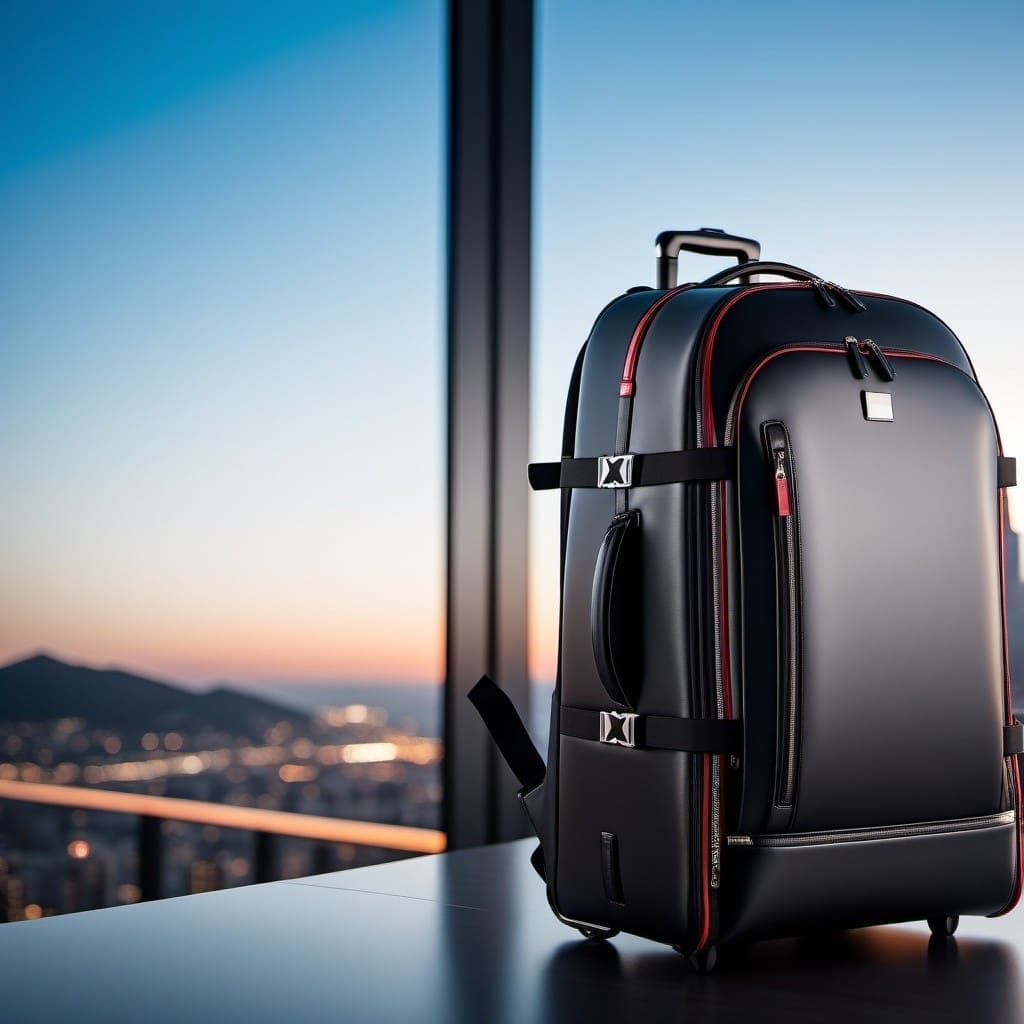If your carry-on luggage feels heavier than a sack of potatoes, you might be facing a common travel dilemma. But fret not, there are practical solutions to help you navigate this weighty situation without breaking a sweat.
From clever repacking techniques to clever ways to redistribute the load, there are several strategies you can employ to avoid excess baggage charges and guarantee a smooth journey.
Stay tuned to discover the best course of action when your carry-on is pushing the limits of airline restrictions.
Key Takeaways
- Weigh your carry-on beforehand to avoid exceeding airline weight limits.
- Repack strategically by redistributing or removing items for balanced weight.
- Understand excess weight fees and airline policies to manage overweight luggage effectively.
- Consider alternative options like shipping items ahead or balancing weight between carry-on and checked baggage.
Weighing Your Carry-On Bag
Guarantee your carry-on bag complies with airline weight limits by weighing it at home before heading to the airport. Knowing your luggage weight can prevent surprises at check-in. Each airline sets its carry-on weight limit, so it’s important to be informed. American Airlines, for instance, allows up to 40 pounds for carry-ons. Exceeding this limit might lead to additional charges or the need to check your bag. On the other hand, Delta doesn’t have a specific weight limit for domestic flights, but it’s always wise to double-check.
Avoid the hassle of having to repack or pay extra fees by weighing your carry-on in advance. If you discover it exceeds the weight limit, consider transferring some items to your checked-in bag or removing non-essential items altogether. By staying within the weight regulations, you can breeze through security and boarding without any setbacks. Weighing your carry-on bag is a simple yet effective way to guarantee a smooth travel experience.
Repacking Strategies for Overweight Luggage
If you find your carry-on luggage exceeding the weight limit, consider smart repacking strategies to lighten the load and guarantee a hassle-free travel experience. Here are some practical tips to help you redistribute weight and avoid overweight fees:
- Redistribute weight: Move heavier items to your personal bag or another carry-on to balance the weight distribution.
- Remove non-essential items: Take out bulky clothing or unnecessary items to reduce the overall weight of your carry-on luggage.
- Utilize airport services: Make use of airport services to help you reorganize your belongings or remove excess items to meet weight limits efficiently.
- Wear your heaviest items: Wear your heavier items like coats or boots instead of packing them to decrease the weight of your carry-on bag.
Handling Excess Weight Fees
When faced with excess weight fees for your carry-on luggage, being aware of airline policies and fees is important for a smooth travel experience. Excess baggage charges can add up quickly if you’re not prepared. Different airlines have varying fees and policies regarding overweight carry-on luggage. To help you navigate these charges more effectively, here’s a breakdown of key points to take into account:
| Key Points | Details |
|---|---|
| Excess Baggage Charges | Fees range from $50 to $200 per bag depending on the airline. |
| Baggage Policies | Some airlines allow prepayment for additional weight allowance to avoid higher fees later. |
| Weight Limit | Exceeding the specified weight limit will result in excess weight fees. |
Understanding these aspects of airline fees and baggage policies can save you money and prevent any surprises at the airport. Be sure to check your airline’s specific rules and fees regarding carry-on luggage to avoid unnecessary expenses.
Alternative Options for Heavy Carry-Ons
Considering the weight of your carry-on luggage, exploring alternative options can help lighten your load and streamline your travel experience. Here are some practical strategies to deal with heavy carry-ons:
- Redistribute Items: Balance the weight between your carry-on and checked luggage to meet requirements and avoid excess baggage fees.
- Evaluate Excess Baggage Fees: Compare the cost of additional weight charges with the potential expense of replacing items at your destination to make an informed decision.
- Ship Items Ahead: Consider sending bulky or heavy items ahead of time to your destination to alleviate the burden of carrying them with you.
- Meet Weight Restrictions: Be prepared to repack or remove items from your carry-on if necessary to comply with weight limits and avoid penalties.
Tips to Avoid Overweight Luggage
To prevent issues with overweight luggage, make sure you are familiar with the specific weight limits set by the airline you are traveling with. Efficient packing is key to avoid exceeding weight restrictions and potential charges for overweight carry-ons. Being aware of any additional charges for overweight carry-ons is important since these can vary by airline and destination. Prioritize adhering to weight limits to guarantee a smooth travel experience and prevent delays during check-in. Research and follow the airline’s policies on carry-on weight limits to prevent last-minute stress and extra expenses.
| Tips to Avoid Overweight Luggage | |
|---|---|
| 1. Familiarize with airline | Specific weight limits for your carry-on bag. |
| 2. Pack efficiently | To stay within the allowed weight limits. |
| 3. Be aware of charges | For overweight carry-ons to avoid surprises at the airport. |
Frequently Asked Questions
What Happens if My Carry-On Is Over Weight?
If your carry-on is overweight, airlines may charge you extra fees, cause delays, and require you to check it in. Avoid this by knowing weight limits, packing smart, checking scale accuracy, and being prepared for potential excess charges.
What to Do if Carry-On Is Too Heavy?
If your carry-on is too heavy, review luggage restrictions, use packing tips, check airport scales, be aware of bag fees, and stay within weight limits. Prepare to adjust items or pay fees if needed.
Can You Pay for Overweight Carry-On?
You can pay for overweight carry-on bags with some airlines for a fee. The cost varies, but it typically ranges from $50 to $200. Make sure to check your airline’s weight limit and excess charges before packing.
Do They Check Weight of Carry-On Luggage?
They do check carry-on weight limits. Enforcement policies vary by airline. To avoid baggage fees or needing to check your bag, pack smartly. Weigh your carry-on before flying. Following airline rules and travel tips can help prevent issues.
Conclusion
So, if your carry-on luggage is overweight, don’t panic! Take a deep breath and follow these simple steps to manage the situation.
Repack strategically, distribute weight, wear your heaviest items, and declutter if needed.
Be prepared to pay extra fees if necessary.
With a little creativity and planning, you can lighten the load and breeze through your next travel adventure hassle-free.
Happy travels!














